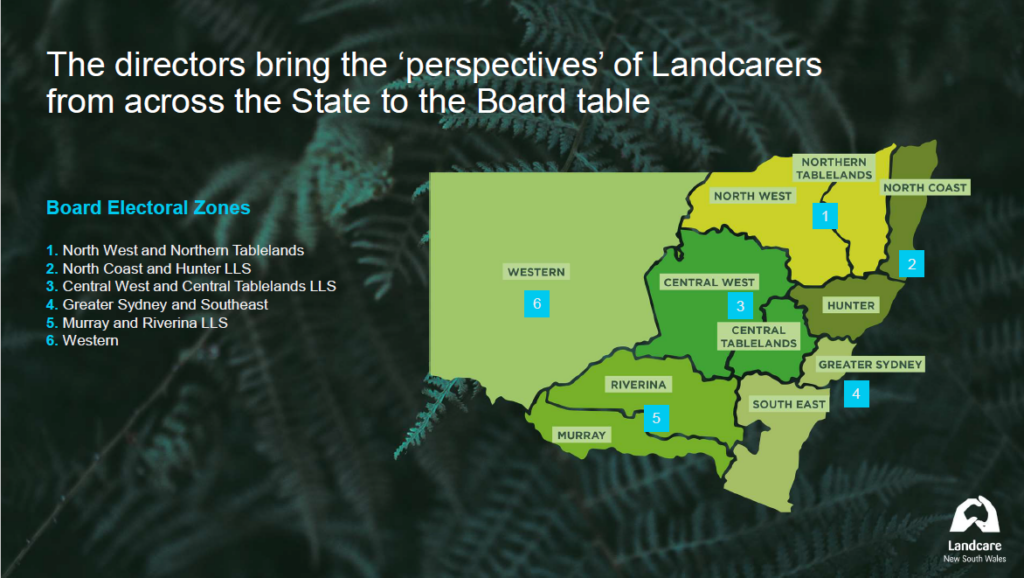ARE YOU A LEADER IN THE GREATER SYDNEY OR SOUTH EAST REGION?
Expressions of Interest (EOI) have been opened until 28 JULY, 2024.
The Board position of ‘Ordinary Director – Greater Sydney/South East Region’, has be now been opened for Expressions of Interest. Landcare NSW are now seeking applications from people living in the Greater Sydney or South East region who are interested in joining the Board of Landcare NSW, the peak body for Landcare in the state.
Former Landcare NSW Chair, Stephanie Cameron said, “Landcare NSW is the peak body for community Landcare in NSW. The primary purpose of the organisation is to serve as a ‘resource advocate’ to ensure that the thousands of Landcarers in NSW have all they need to care for our land, environment and communities.”
To ensure that Landcare NSW has the perspective of everyone in the state, Board Directors are elected from electoral zones that cover the entire state.
“If you live in the Greater Sydney or South East electoral zone and share our commitment to strengthening and growing the community Landcare movement in NSW to improve the health of our natural and working landscapes, you should consider standing for the Board,” said former Landcare NSW Chair Stephanie Cameron.
The Greater Sydney & South East Electoral Zone covers the area of the state which correspond to the boundaries of NSW LLS Western Regional boundaries.
Are you skilled in Finance, NFP &/or Marketing and Philanthropy?
The Landcare NSW Board are currently ideally seeking EOI from skilled individuals with experience in Finance, Not-for-Profit organisations and/or Marketing and Philanthropy, who reside in the Greater Sydney or South East Region.
Candidates for Ordinary Director positions must normally reside within the geographic boundaries of the region they wish to represent. Here is a LINK to a map to help you determine the region you live in.
Candidates for Ordinary Director positions must be a member of a local Landcare NSW member group or a District Network. These candidates will need to verify their membership by having their nomination form signed by the secretary of the local association (must be incorporated) or by the district network association or regional association (if local group is unincorporated).
Nominations will be open to individuals who wish to lodge an Expression of Interest from 3 June to 28 July 2024. All nominated candidates must be vetted and approved by the Nominations Committee before proceeding to the election in the case of Ordinary Director candidates, and appointment in the case of Independent Director candidates.
Elections for Ordinary Directors will be held by electronic ballot online from 1 – 30 September 2024. Successful candidates will be announced at the November 2024 Annual General Meeting and will take office at the first Board meeting thereafter.
If you have any questions please get in touch with Nominations Committee Chair – Steve Bunnell via email: election@landcarensw.org.au
If you wish to send an expression of interest, you can do so by filling out the Expression of Interest Form, and sending through to election@landcarensw.org.au
EXPRESSIONS OF INTEREST HAVE BEEN OPENED AND WILL CLOSE SUNDAY 28 JULY 2024.
